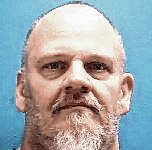Theming the 27th annual Freedom Fund Scholarship Banquet around “Our lives matter, our votes count,” Columbus’ NAACP branch revisited the historical struggles for equality as a challenge to work on today’s issues revolving around race.
About 60 people attended the banquet Tuesday night at Donner Center, a crowd that included leaders from throughout the community and several candidates who are hoping to be named leaders on Tuesday.
Delores Sanders, local NAACP branch president, reminded the audience to vote, and when heading to the polls, take someone with you who doesn’t have a ride.
In her keynote address, Aida Ramirez, executive director of the Columbus Human Rights Commission, took listeners back through a history lesson of efforts to block people of color from accessing basic civil rights, including the right to vote, and describing how those efforts continue today.
[sc:text-divider text-divider-title=”Story continues below gallery” ]
The theme throughout her talk was “If there is no struggle, there is no progress,” a quote from Frederick Douglass, who was delivering a West India Emancipation speech on Aug. 3, 1857, at Canandaigua, New York.
Ramirez talked about people of color struggling for freedom, education, jobs, opportunities to vote, from the 1800s through today.
From the ruling on Brown vs. the Board of Education that said separate but equal is not equality in education, to the Voting Rights Act of 1965 which aimed to eliminate voting barriers for people of color, Ramirez cautioned that new forms of disenfranchisement are still being practiced.
In the early 1900s, poll taxes and literacy tests were used to keep communities of color from qualifying to vote and being given the ability to choose who would govern, Ramirez said. There were also property tests, which required voters to own property — something that people of color and women were not allowed to do, she said.
“And I ask you, quite humbly, what has changed in the last 51 years?” Ramirez said, referring to the Voting Rights Act of 1965.
The new “poll tax” or “literacy test” is the requirement of photo identification for voters — state-issued and authorized identification, she said.
As many as 25 percent of African-Americans nationwide don’t have a photo ID compared to 9 percent of whites, she said.
Part of the issue is that some people don’t have a birth certificate, which is required for a photo ID through the state. Sometimes that is the result of either not being born in a hospital, or not knowing where their birth was recorded, if it ever was recorded, she said.
In many communities of color, life revolves around the church and individuals have baptismal records with a date of birth, which is not accepted by the government, nor allowed to be used to obtain a birth certificate, she said.
A passport may also be used to apply for a state-issued photo ID, but again, a birth certificate is required, she said.
“In Texas, if you have a gun permit, that’s an accepted form of identification to vote,” Ramirez said. “In Texas, if you are a college student, your college ID is not.”
“It’s chilling to think about the different forms of poll tax that are in place today,” she said.
Ramirez also said the current law enforcement and prison system is designed to put a proportionally larger number of people of color into prison, resulting in their inability to vote, another form of disenfranchisement.
In a nod to Sanders, Ramirez said she wasn’t sure she had the NAACP president’s blessing, but she wanted to talk about the “Black Lives Matter” movement.
“We have some lovely people here; they have the Black Lives Matter T-shirts on,” she said.
She then asked, “How does it make you feel when someone says “All Lives Matter?”
Ramirez said the “All Lives Matter” message already abounds, but society isn’t paying as much attention to black lives, referring to the shootings of young black men across the country.
The phrase “Black Lives Matter” is not meant as anti-white and does not support violence, she said.
“It’s a way of saying all of us are significant, all of us matter,” she said. “Because historically, black lives haven’t mattered.”
Anthony Hayden, one of the young people wearing a “Black Lives Matter” T-shirt at the dinner, said he thought Ramirez’ speech was wonderful.
“Until all Black Lives Matter, our lives don’t mean as much as everyone else’s,” he said. “I’m here to help and better our community through service and education,” he said. “I’m very appreciative she brought that up and honored that she did.”
Gil Palmer, former chairmen of the human rights commission and a commission member, said he was proud of Ramirez for sharing the strong message with the NAACP.
The connection of poll taxes of yesteryear with the comparisons to today’s struggles for equality were interesting to the Rev. David C. Bosley, pastor of Dayspring Church of God Apostolic, Columbus.
“That really resonated with me,” he said. “My parents were from Mississippi — my father was from Natchez, Mississippi — it was one of the intake centers for slavery,” he said. His father left the South and never wanted to go back, Bosley said.
During the program, NAACP branch education chairwoman Marsha W. Leggett asked those in attendance to consider donating to the NAACP’s scholarship fund efforts, to provide assistance for a student to attend college. The annual banquet is a fundraiser for that cause.
Pastor Harvey Leggett led the group in singing “Lift Every Voice and Sing,” which includes the words:
“Sing a song full of the faith that the dark past has taught us,
Sing a song full of the hope that the present has brought us,
Facing the rising sun of our new day begun,
Let us march on till victory is won.”
[sc:pullout-title pullout-title=”How to help” ][sc:pullout-text-begin]
People interested in donating to the Columbus/Bartholomew County Area NAACP Branch scholarship may send donations, marked “scholarship fund,” to the local NAACP office at 1531 13th St., Suite 600, Columbus, IN 47201.
[sc:pullout-text-end]




